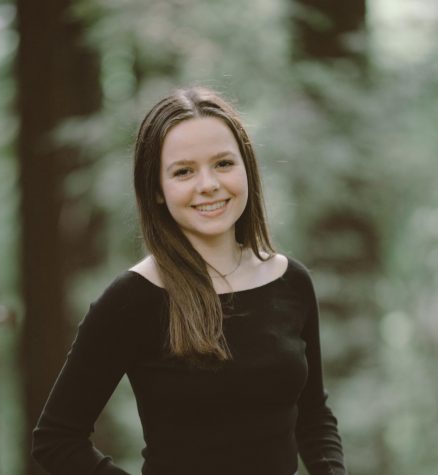How To Be: A Poet
Local poets discuss their experiences, how to get started in the profession
“You end up writing a lot of things that go nowhere,” Russo said. “Just honor your own story and your own struggle, and be fierce.”
November 12, 2020
Poetry is a written art that unites word and form, a melding that few can accomplish; however, there is no shortage of talented poets on the Palouse.
Now a professor and assistant editor of WSU’s Blood Orange Review, Cameron McGill was a full-time musician for years before he began writing poetry. After gaining interest in poetry in the early 2000s, McGill’s passion grew until he decided to go to graduate school at 39.
“It really unlocked for me personally — a whole other language with which to discuss things that were on my mind that I didn’t feel were fitting into song,” McGill said.
McGill said his writing process includes reading poetry before he writes his own and looking for what he relates to.
“An image can come alive in my mind because someone else reminded me of that,” McGill said. “I think there’s a real beauty there in the transference of inspiration from someone else’s voice and work and our own work.”
All writers have different processes, McGill said, but he has some advice to share for those new to the process: keep writing. He acknowledges that it may sound really simple, but it’s also a difficult thing.
“[Poetry] in some ways, it is the greatest validation of our own feelings. [It says] I’m a person who has these emotions and I refuse to have that be oversimplified,” McGill said. “It shows us as human beings at our most alive.”
Linda Russo, director of creative writing at WSU and founder of EcoArtsOnThePalouse, a website dedicated to the connection of arts and the environment, also includes poetry in her repertoire.
Russo noted her work has many elements of location and nature and said that the link between writing and nature has always existed for her starting from an early age. She said her love of nature has only deepened after coming to the rolling hills of the Palouse.
“It wasn’t until I moved to Pullman that these spaces really called to me,” Russo said. “I discovered these paths along the Palouse river that showed me people sought out these wild areas.”
Russo said what she likes about poetry is the ability to share, be in spaces and make connections, but also staying with it and revisiting a piece to rework it and continue to discover poems. This process allows her to experiment with different forms, diction and perspectives which allow her to cultivate that initial intelligence of being in that place.
Growing up, Russo always gravitated towards language, she said. It wasn’t until after college, through the guidance of her teachers, that she came to feel she was first and foremost a poet. While still living in her hometown of Boston, she followed her interest by working at the Grolier Poetry Book Shop, where the owner would let her check out any books she wanted.
“Poetry is a very connective form,” she said. “You can weave things into a poem and notice things very quickly in a way that you wouldn’t in an essay or a work of fiction.”
As for what advice Russo would give to her younger self and young writers now, she stresses the importance of persistence and truth.
“You end up writing a lot of things that go nowhere,” Russo said. “Just honor your own story and your own struggle, and be fierce.”
She also highlighted the importance of mentorship.
“When you find your teacher, whoever that is, really listen to them and what they have to teach you,” she said.
WSU students like Ally Pang also have impressive work to share. As editor-in-chief of the student-run LandEscapes literary magazine, Pang has been writing poetry since she was in seventh grade. Pang said she became interested in writing fiction at a young age.
“Wanting to become a writer was something that kicked in at such a young age that it startles me that I am still here and pursuing writing” she said.
With her slam poetry, Pang often combines her passions of poetry and video editing to create a multimedia experience, which she did in the Art for Social Change Competition last year. Her work in this competition gained her the title of WSU Civic Poet.
“I combine all of my passions, if I can, into one another: multimedia, poetry and fiction writing,” Pang said.
Pang said that slam poetry has a rhythm behind it and a flow, comparing it to a cappella or talking to oneself, but sometimes she includes visuals and music during her performance to compliment her work and connect with others.
“I feel like I have more of a voice that can be heard through slam. That’s what I really like about it because I am such an introverted person,” Pang said. “I feel like slam is my way to get people to hear me, and in some ways, it’s helping me contribute to the pool of the arts.”
While all poetry is different, it gets at a core idea: emotional communication.
“[We all] have a unique way of seeing the work and being in it. I’m intrigued by how different our perceptions are,” McGill said. “[Poetry] is a form to hold anything you want to say.”
McGill’s book of poetry “Meridians” investigates the concepts of place and memory and can be found online. His next book, which is arriving sometime next year, will also be available online.
Russo has a scholarly essay titled “Ways of Being Earthly: Sympoetic Ecopoesis and Birds in Larry Eigner’s Poems” coming out in the book, “Momentous Inconclusions,” in December. She also has upcoming poems which will be appearing in “Court Green” and “Interim.”











